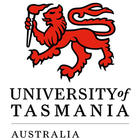Master of Professional Engineering (Specialisation) – Renewable Energy and Electrical Power
Master of Professional Engineering (Specialisation) – Renewable Energy and Electrical Power
The Master of Professional Engineering (Specialisation) is designed to inspire the next generation of innovative professional engineers. Whether you want to transition into a new specialisation, or update your qualification to meet Australian industry requirements, this postgraduate course will provide you with the knowledge and skills to reach your career…
Categories
COURSE DESCRIPTION
The Master of Professional Engineering (Specialisation) is designed to inspire the next generation of innovative professional engineers. Whether you want to transition into a new specialisation, or update your qualification to meet Australian industry requirements, this postgraduate course will provide you with the knowledge and skills to reach your career goals in this evolving industry.
Complete this course in two years
The majority of students can complete this course in two years based on previous studies. This includes students who have completed a bachelor’s degree in engineering (other than civil or mechanical), a non-Washington accord bachelor’s degree in civil or mechanical engineering, or students who hold a Bachelor of Science with sufficient numerical skills.
Course objectives
Designed in consultation with Engineers Australia, this course has been created to meet the needs of the modern engineer. Throughout your degree you will develop key knowledge and skills relevant to your chosen specialisation – allowing you to customise your learning for your career of choice.
Through research projects, laboratory sessions, professional work placement, and industry field trips, your opportunity to practice and apply your skills is limitless. Your first year of study will include building foundation knowledge in engineering statics, dynamics and circuits, as well as core skills in problem solving, data analysis, and mathematics.
Learning Outcomes
1 Formulate substantiated conclusions for an assortment of contemporary engineering problems through applying local and advanced engineering knowledge, and established and emerging methods of engineering analysis.
2 Design engineering components, systems and/or processes to address an assemblage of technical, ethical, legislative and resourcing considerations.
3 Successfully complete real-world engineering projects by applying the professional and personal attributes required of an accredited professional engineer.
4 Disseminate original research conclusions emanating from a local engineering project for professional, academic and lay audiences.
Career Opportunities by Specialisation
Renewable Energy and Electrical Power
As a graduate of the Renewable Energy and Electrical Power specialisation, you’ll be equipped with a deep understanding of power system planning, energy economics and key features of the energy system regulatory environment providing you with critical skills to make a positive contribution to climate change while ensuring developing nations are able to meet the energy needs of their growing populations.
We work closely with the state’s major energy provider, Hydro Tasmania and their energy consulting firm Entura to help provide clean renewable energy throughout Tasmania, Australia, the Indian subcontinent, South East Asia, and the South Pacific.
Tasmania is the only state in Australia to produce 100% of its energy from renewable sources with renewable energy being one of Tasmania’s leading exports meaning you will not only be exposed to the societal benefits but also the fiscal benefits created through the production of renewable energy and electrical power.
REQUIREMENTS
A Bachelor degree in a science based discipline with sufficient numerical skills to undertake the MProfEng (Specialisation) course; or
A Bachelor degree in Engineering (Non-Washington Accord) or
A Bachelor degree in Engineering majoring in a different specialisation than that to be undertaken under the MProfEng (Specialisation).
Admission to most postgraduate coursework courses at the University of Tasmania require qualifications equivalent to an Australian bachelor degree.
IELTS (Academic) – 6.0 (no individual band less than 6.0)
TOEFL (iBT) 72 (no skill below: Reading 16; Listening 16; Speaking 18; Writing 22)
PTE Academic 50 with no score lower than 50
UTAS Access-English Level 7 – 60% (no individual score less than 60%)
Cambridge CAE (Certificate of Advanced English) – B Grade
Cambridge CPE (Certificate of Proficiency in English) – C Grade
Cambridge BEC (Business English Certificate) Higher – C Grade.
EDUCATIONAL INSTITUTION
The University of Tasmania was officially founded on 1st January 1890 and is located at Sandy Bay, Tasmania. In addition to the main campus at Sandy Bay, it also operates out of the Newnham Campus and the Cradle Coast Campus. The most popular courses offered are the environmental studies that include wilderness management, marine sciences and indigenous studies in Tasmanian literature. Other unconventional courses include agriculture development, studies on the community and population and ocean study programs. The university also comprises of a Music Conservatorium, Art school and a School of Clinical studies.




